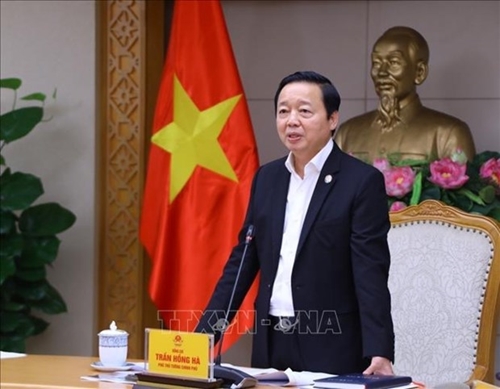May 31, 2023 | 20:11 (GMT+7)
Steering committee seeks solutions to realize green growth targets
The national steering committee for green growth should work out specific solutions to realise green growth targets based on the country’s socio-economic conditions, Deputy Prime Minister and head of the committee Tran Hong Ha said at the committee’s first meeting on May 30.
The Deputy PM required the committee to update green growth-related statistics and targets since the COP26, and study experiences of countries in implementing green growth strategies with a view to draw out lessons for Vietnam.
    |
 |
|
Deputy Prime Minister Tran Hong Ha speaks at the meeting. |
He underlined the need to identify a number of pilot projects in priority fields such as legal framework, science-technology, education-training and digital transformation, which will serve as the foundation for green growth in sectors with large emissions like agriculture or transport.
He also instructed that ministries and sectors urgently build sets of tools and binding standards to classify and assess green growth, while additional investment should be ensured for the transition from the traditional growth model to green growth.
Besides green growth, Deputy PM Tran Hong Ha noted the important role of the digital economy in leading green and sustainable growth.
According to a report of the Ministry of Planning and Investment, the International Renewable Energy Agency assessed that Vietnam has great opportunities for green growth given its advantages in carbon storage capacity, forest resources and renewable energy potential.
The country also has one of the fastest growth rates in the digital economy in the region. However, Deputy Minister of Planning and Investment Nguyen Thi Bich Ngoc said green growth in Vietnam is facing challenges posed by an inconsistent legal corridor, the lack of a national green growth standard system which hinders the building of support mechanism and policies for green growth projects. The country is also yet to have tools to monitor and assess the realization of green growth targets during 2021-2030. In addition, resources for green growth remain limited.
Source: VNA